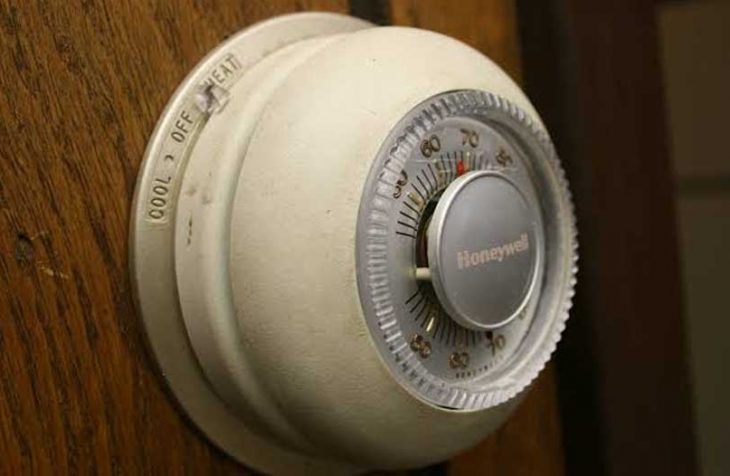How to Dispose of a Mercury Thermostat
The key reason many people want to replace a mercury thermostat is that newer models are more accurate and have user-adjustable options.
For example, some new models allow the user to connect to a smartphone and change settings from the more user-friendly mobile phone interface.
Of course, an accurate thermostat will also lead to lower electricity costs as a result of the accurate response to temperature control requirements.
Safety Measures When Using Mercury Thermostats
As the name suggests, mercury thermostats contain mercury vapors that are toxic to the nervous, respiratory, and digestive systems, as well as eyes and skin. Mercury can adversely affect a growing fetus leading to the damaged nervous system and visible symptoms include defective language and cognitive skills among others.
It is therefore imperative that great care is exercised when replacing and disposing of a mercury thermostat. It is noteworthy that indirect exposure to mercury such as through eating contaminated fish will still lead to fatal effects over time.
How to Safely Dispose of a Mercury Thermostat
Here are ways to follow when disposing of a mercury thermostat.
Prepare: Ensure that you find a safe disposal center where you can take a mercury thermostat after you replace it. This is most likely a government-approved hazardous waste disposal center.
Handling: Place the mercury thermostat you want to dispose of in a recommended dangerous waste container. If that is not available, use a throwaway glass or plastic container. There must be space left inside the container after placing the mercury thermostat there. The reason is explained in the next step.
Possible Leakage Prevention: To prevent the mercury from spreading in case of a leakage, fill the space left inside the container with sand.
Safety Tag: Clearly mark the container with a description of its contents. You may write “Hazardous Waste – Mercury Inside”.
Handover: Take the container to the safe disposal center identified during Preparation. It is advisable to carry out all the measures outlined above in one session so as to avoid any mistakes that may lead to exposure and contamination of the environment.
Identifying If Your Thermostat Has Mercury
The sure-fire way of knowing if your thermostat has mercury is going to a hazardous waste center with details of the thermostat you wish to dispose of and inquiring if it has mercury.
However, it is fairly easy to tell if your thermostat has mercury by looking for information on its label like “contains mercury” or “Hg” (which is the chemical symbol for mercury). You could also take off the cover and look for a small glass container with a silvery liquid inside it.
Are Mercury Thermostats Legal?
Some US states have banned new mercury thermostats from being installed but allow old ones to be recycled properly. This is because you can only recycle mercury and not dispose of it.
Where to Dispose of Thermostat That Contains Mercury
A number of non-profit organizations supplement government efforts for safe disposal and recycling of mercury thermostat in hazardous waste management programs. You can use Earth 911 to locate a recycling center near you.
Replace a Mercury Thermostat with a Digital Thermostat
Those who have replaced a mercury thermostat with a digital thermostat have hailed it as the best invention since fire. A digital thermostat is environmentally friendly as it contains no mercury.
The best thing about it though is that allows the user to automatically adjust the temperature when certain thresholds are reached on both lower and higher temperature limits. This also saves on energy bills and allows you to send the old thermostat to a recycling center instead of troubleshooting it.
Environmentally conscious temperature control is a worthy achievement for those who are able to recycle old mercury thermostats. If you replace a mercury thermostat with a digital one, you can track the savings you make with available smart trackers and calculators that are the preserve of digital thermostats. You also rest easy knowing you do not have a device with hazardous materials around the home.
